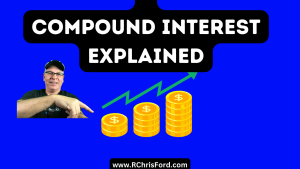Familiar with Compound Interest?
Compound interest is a financial concept that relates to the growth of an investment or debt over time. It occurs when interest is calculated not only on the initial principal amount but also on the accumulated interest from previous periods. This results in the interest earning interest, leading to exponential growth or debt accumulation.
Key components of compound interest include:
Principal (P): The initial amount of money invested or borrowed.
Interest Rate (R): The percentage rate at which interest is applied to the principal, typically expressed as an annual rate.
Time (T): The duration for which the money is invested or the debt is outstanding, typically measured in years.
Compounding Periods (n): The frequency at which interest is calculated and added to the principal. Common compounding periods include annually, semi-annually, quarterly, monthly, and daily.
The formula for calculating the future value (FV) of an investment with compound interest is:
��=�×(1+��)�×�FV=P×(1+nR)n×T
Here’s how it works:
The principal (P) is multiplied by (1+��)(1+nR), which represents the factor by which the money grows or accumulates in one compounding period.
This factor is then raised to the power of �×�n×T, which represents the total number of compounding periods over the given time.
The result is the future value (FV) of the investment or debt.
The more frequent the compounding (higher ‘n’), the faster the money will grow or the debt will increase. As a result, compound interest can have a substantial impact on the final amount.
For example, if you invest $1,000 at an annual interest rate of 5% compounded annually for 5 years, the future value would be calculated as follows:
FV = 1,000 \times \left(1 + \frac{0.05}{1}\right)^{1 \times 5} = 1,000 \times (1.05)^5 \approx $1,276.28
So, after 5 years, your $1,000 investment would grow to approximately $1,276.28 due to compound interest.
On the other hand, compound interest can also work against you when you have debts. If you have a loan with compound interest, the outstanding balance can grow much faster than a simple interest loan, making it important to understand how compound interest affects your financial situation.
Conclusion
When dealing with cryptocurrency be very careful and diligent in choosing your course. Compound interest is great when used properly. But can also work against you if you are not properly positioned. Please remember this is not considered to be financial advice and I am not an expert on finances. This information is for educational purposes only and is only my opinion.
